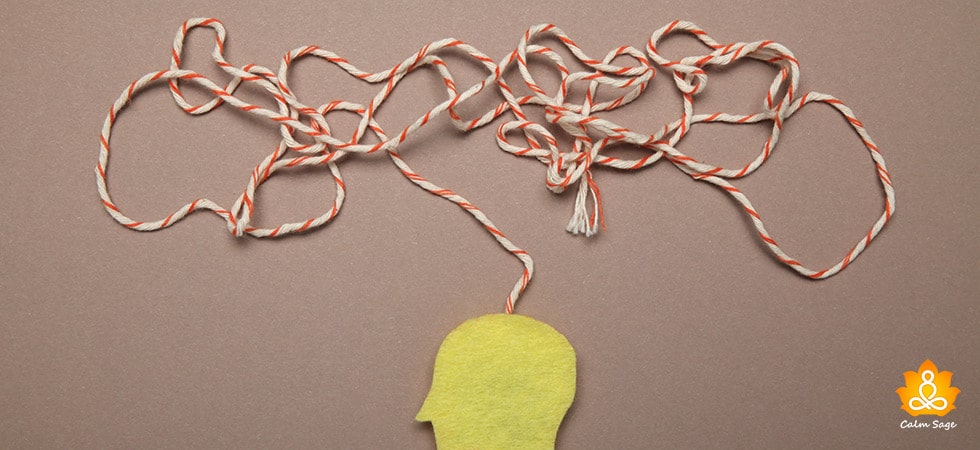OCD Avoidance: What You Need to Know About It

One of the complex mental health disorders is obsessive-compulsive disorder (OCD). Many people believe OCD is about washing your hands a zillion times or re-arranging things until everything looks perfect. It isn’t like that. OCD has this interesting sidekick known as “Compulsive Avoidance” that convinces you to dodge and escape things that can trigger your OCD obsessions.
OCD, for many, is a coping mechanism for anxiety as well. If you’re afraid of catching the flu, then you’ll avoid any crowded situations where there’s a risk of catching the flu. However, the more you avoid the situation, the harder it will be to do your daily tasks without feeling anxious.
OCD can make someone experience reoccurring thoughts or behaviors. Avoidance in OCD is often a coping mechanism as well. You might want to avoid obsessive thoughts that trigger your obsessions, however, avoiding them might not always work.
In this blog, let’s take a look at some of the most common signs of OCD avoidance and how you can cope with it.
What is Compulsive Avoidance?
Now imagine this; you’re walking down the street and suddenly you see a miniscule crack in the sidewalk. Most of us, including me, would just keep on walking, but if you have OCD avoidance, then that simple crack will become a huge deal. Compulsive avoidance is like having an overprotective voice in your head. It’s when you go a great lengths to avoid anything – place, people, things, situations – that might trigger your obsessive thoughts or behaviors.
Signs And Symptoms to Look Out For
So, how to spot the signs of OCD avoidance, you ask? Here’s a handy list for you;
- You feel excessive fear of specific things such as germs, numbers, or even objects
- You have avoidance rituals to stay away from these fears like washing your hands regularly, counting your steps, etc.
- Avoidance has taken over your life, daily activities, and even relationships
- Avoiding triggers brings temporary relief but it doesn’t address the underlying issue
What Causes OCD Avoidance?
There are no specific recorded causes or factors of OCD avoidance, but it is believed that OCD avoidance can be a mix of genetics, environmental, and neurological factors. Sometimes, it has nothing to do with any of the above.
Avoidance plays a major role in OCD and its manifestation. It keeps the obsessions and compulsions going. Your mind says to avoid something, say shaking someone’s hands, and you listen and also feel better at the moment, but then another fear pops out of nowhere. Eventually, it becomes a never-ending loop that makes you feel anxious without a break.
Can OCD Avoidance be Treated?
Yes! If OCD Avoidance is something you relate to, then there’s hope for you yet. Treatment options to treat OCD avoidance can include;
1. Cognitive-behavioral therapy (CBT)
CBT is one of the most recommended therapy options for OCD. This therapy helps address and confront your fears and negative thought patterns to gradually help you reduce avoidance behaviors and reframe negative into positive thoughts.
2. Medications
In some cases, an OCD specialist or a psychiatrist may prescribe certain medications to help ease the anxiety that fuels the avoidance behavior in OCD. However, keep in mind to take only prescribed medications and talk to your doctor beforehand to check if the medication is safe for you.
3. Exposure And Response Prevention (ERP)
Another common and most recommended therapy for OCD is exposure and response prevention therapy. This therapy involves facing your fears in a controlled environment, under a professional’s guidance. This exposure is done gradually while helping you resist the urge to avoid.
How to Cope With OCD Avoidance?
Managing OCD isn’t easy, but you can always seek a professional’s help or employ these coping tips in your routine to cope with OCD avoidance;
- Take small steps and gradually confront your fears instead of rushing in. Try to keep a snail’s pace when trying to resist the urge to avoid. It might take some time for your therapy and techniques to fully work, so be patient and take it slow.
- Seek support when you can and try to share your feelings with your loved one. You can also consider joining OCD support groups to seek others going through similar experiences. You can learn from their experiences too. Know that you’re not alone in your struggles.
- Practice mindfulness and relaxation techniques such as meditation, deep breathing, and other grounding techniques for OCD to keep the anxiety, overthinking, and distress that come with OCD avoidance at bay.
- Take care of yourself – both mind and body – when you’re learning how to cope with compulsive avoidance. Doing so much against your wishes can take a toll on your health so pay attention to yourself.
- Learn to divert your mind and attention by finding healthy outlets for your behaviors. You can try journaling your thoughts, physical exercises, or engaging in any hobbies to keep yourself distracted enough so that you don’t engage in your compulsions and obsessions.
Wrapping Up…
So, there it is, folks! OCD avoidance might be something as a coping mechanism, but when you continuously try to avoid your triggers, it might turn into a compulsion as well. And we don’t want that, do we? So, if you fear something, instead of avoiding it, try to face it in a more controlled environment so that you don’t feel worse.
It is recommended that you speak to a therapist, one who can help you face your fears and cope with avoidance in OCD.

Great for a large network of licensed therapists
-
$60 to $90/week, billed every 4 weeks
-
Therapy via messaging, phone, or live video chat
-
Flexible cancellation at any time
20% off your first month by Coupon Code CALMSAGE

Great for CBT Based therapists
-
$50–$110/week, billed monthly
-
Therapy via messaging, live video chat and Worksheets
-
Have Yoga & meditation videos, journal, activity plan & tests
20% off your first month

Best for Treatment Plans
-
$69-$129/week, billed monthly
-
Therapy via messaging, phone, live video chat and workshops
-
Flexible cancellation at any time
-
Offers therapy and psychiatry services
$100 off your first month with code CALMSAGE

Best For Number of options
-
Get matched with your best-fit counselor within 1 hour
-
Therapy via messaging, phone, or live video chat
-
Provide digital tools to train your mental skills
If you are diagnosed with OCD, then know that avoidance is not the right way to manage the anxiety that comes with it. OCD is a treatable condition, and with the right support and help, you can also learn to cope with your compulsions and obsessions, and thrive!
I hope this article helped you understand what OCD avoidance is and how you can cope with avoidance in OCD. Let me know your thoughts in the comments below.
Take Care!




















